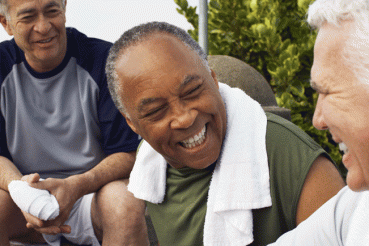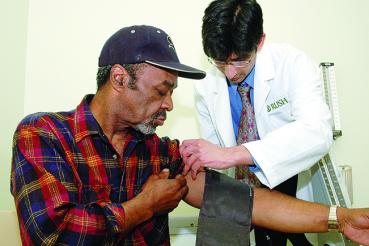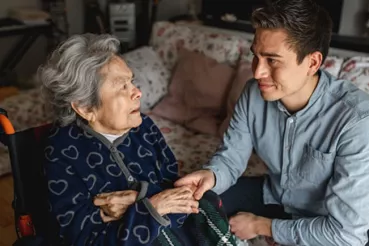How to help your loved ones stay independent
Sometimes a bit of assistance can help us become more independent. This is how Poonam Merai, MD, a geriatrician at Rush University Medical Center, looks at assistive devices such as canes, walkers and hearing aids.
"It's often a way to have more mobility, or better function, so there's a positive way to look at it," she says. Still, adjusting to an assistive device can be a challenging process.
How can you help your loved one through it?
1. Recognize that it's a process.
While assistive devices can help people achieve their goals and become more independent, they also can symbolize loss of function. And that can make it difficult to start using them.
"Your loved one might go through all the stages of acceptance — denial that they might need it, anger that you are suggesting it, bargaining, depression and eventually acceptance," Merai says.
"If they’re not ready yet, you can keep gently addressing the issue. But recognize that it's going to be more of a process than, 'This is your assistive device, problem solved, now use it.' "
2. Talk about goals, not needs.
If you think a loved one might benefit from an assistive device but they seem resistant to it, frame the issue in terms of their goals and desires — not in terms of what they "need."
So, for example, if someone wants to be able to climb stairs, say something like, "Let's go to the doctor to see how we can achieve this goal." Don't jump to conclusions about the solution or frame the problem as something your loved one is lacking.
3. Fit the device to the person.
Whatever your loved one's goals, seeing a doctor and getting the right prescription is often an important first step. That's because assistive devices that aren't properly fitted can cause discomfort, frustration or even injury.
For example, if someone buys a cane from a drug store or borrows one from a friend, it's often not the proper height. If a cane is not the right height — it should come to the crease of the wrist — it can lead to carpal tunnel syndrome, poor posture or even osteoarthritis.
And maybe a cane isn't even the right choice. For some people, walkers offer more help with balance. Either way, Merai often recommends working with a physical therapist to make sure the assistive device is fitted properly.
Similarly, for people who decide to get a hearing aid, it's important to work closely with a good audiologist. "At Rush, we have some great audiologists who really make sure that patients are comfortable with the device and understand how to integrate it into their daily living," Merai says.
Assistive devices that aren't properly fitted can cause discomfort, frustration or even injury.
4. Explore the options.
For some patients who want to achieve a certain function, Merai will often make a referral to an occupational therapist.
"There are a lot of small devices out there to help with things like opening jars or tying shoe laces, and an occupational therapist can recommend something that fits the patient's goals," she explains. "There's so much out there. So help your loved one explore the options."




